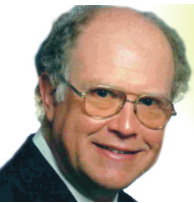Looking for advice and guidance is the only way to do things right
It’s amazing how many people think they know everything. I can remember responding, “I don’t know” to a question, and the woman who had asked it was amazed. “What did you say?” I repeated my response, and she couldn’t believe it. She claimed she had never heard her father, her brothers or her husband say those words. I say them often.
Nobody can know everything, although some think they do. I learned long ago to always go to the experts for answers. If I’m running a project or the operations and I have a mechanical problem, a mechanical engineer, preferably the one who designed the part, is probably the person I want to speak with. If it’s an electrical problem, an electrical engineer can probably help.
Sometimes the expert with whom we need to speak with is a worker on a manufacturing line. He or she may have no degrees, may not have even finished high school, yet they see what no one else sees. They sometimes volunteer their knowledge, but it often falls on deaf ears. “What could they possibly know?” I can tell you they often have the answers.
I did some work for Boeing years ago, and they had a mantra I really loved: “All of us together are much smarter than any one of us alone.” It’s so true. We were at their facility in Everett, Wash., where they assembled 747s. Putting one of those together takes an awful lot of collective wisdom and expertise. Whenever they ran into problems, they’d get specialists in that area who knew what to do.
Not knowing everything is nothing to be embarrassed about. Doctors often refer their patients to specialists when the patients have a malady that can best be treated by somebody else. That’s the kind of doctor I want. I’ve been to too many funerals where a doctor didn’t refer a patient soon enough.
Humility, especially in knowing what we don’t know, is a tremendous asset. These are the people I most admire.
Years ago, I was very fortunate to get to know and work with Dr. W. Edwards Deming, the guy who is generally given the credit for showing the Japanese and so many other people how to make such high-quality products.
The last time I saw him, we were in Santa Clara. He remembered me, and we chatted. He told me he was still trying to find better ways to improve quality. He was 93 at the time, had been nominated for the Nobel Prize several times and was one of only two non-Japanese people to ever receive the Emperor’s Order of The Sacred Treasure.
The other non-Japanese recipient was Gen. Douglas MacArthur, who had had the wisdom to not execute the emperor after the Japanese surrender. It enabled us to gain the support of the Japanese people, who think of their emperor as sacred.
After the meeting with Deming, I met with a forty-something executive vice president of a high-tech company, who knew everything there was to know about everything. His company was failing, but he didn’t think he needed help. If he was that good, why hadn’t he fixed it already?
Now, for which of these two people do you think I have the greatest respect?
The VP was a nice guy. In fact, he was a fellow sailor. His office was plastered with pictures of his boat. Once I saw that, I used sailboat racing examples to talk to him in his own language. Despite never having won a race, he thought he knew everything there, too.
If you’ve got a know-it-all boss, and you can’t get him to seek and use the proper inputs, you might want to look for another job. That management style is destined for failure, perhaps on a grand scale. You don’t want to be part of the team when they hit the iceberg. Even if you get on a lifeboat, there will be lots of embarrassing questions to answer. Such a failure could haunt you for a long time.
Ronald J. Bourque, a consultant and speaker from Salem, has had engagements throughout the United States, Europe and Asia. He can be reached at 603-898-1871 or RonBourque3@gmail.com.